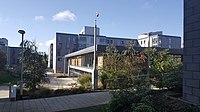
Alan Mathison Turing was an English mathematician, computer scientist, logician, cryptanalyst, philosopher, and theoretical biologist. Turing was highly influential in the development of theoretical computer science, providing a formalisation of the concepts of algorithm and computation with the Turing machine, which can be considered a model of a general-purpose computer. He is widely considered to be the father of theoretical computer science and artificial intelligence.
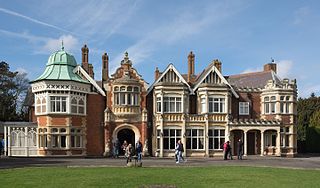
Bletchley Park is an English country house and estate in Bletchley, Milton Keynes (Buckinghamshire) that became the principal centre of Allied code-breaking during the Second World War. The mansion was constructed during the years following 1883 for the financier and politician Sir Herbert Leon in the Victorian Gothic, Tudor, and Dutch Baroque styles, on the site of older buildings of the same name.
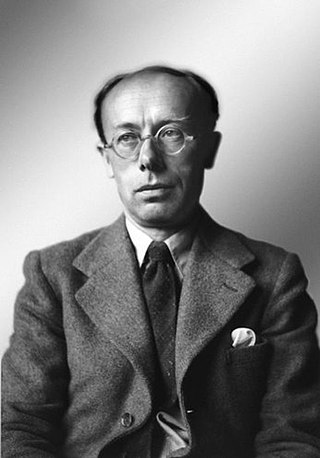
Maxwell Herman Alexander Newman, FRS,, generally known as Max Newman, was a British mathematician and codebreaker. His work in World War II led to the construction of Colossus, the world's first operational, programmable electronic computer, and he established the Royal Society Computing Machine Laboratory at the University of Manchester, which produced the world's first working, stored-program electronic computer in 1948, the Manchester Baby.

The University of Kent is a semi-collegiate public research university based in Kent, United Kingdom. The university was granted its royal charter on 4 January 1965 and the following year Princess Marina, Duchess of Kent, was formally installed as the first chancellor. The annual income of the institution for 2021–22 was £260.4 million of which £17.7 million was from research grants and contracts, with an expenditure of £326.7 million.
Alfred Dillwyn "Dilly" Knox, CMG was a British classics scholar and papyrologist at King's College, Cambridge and a codebreaker. As a member of the Room 40 codebreaking unit he helped decrypt the Zimmermann Telegram which brought the USA into the First World War. He then joined the Government Code and Cypher School (GC&CS).

The Alan Turing Memorial, situated in Sackville Gardens in Manchester, England, is a sculpture in memory of Alan Turing, a pioneer of modern computing.

King's College Boat Club is the rowing club for members of King's College, Cambridge. The first record of King’s rowing is in 1838.

Brian John Copeland is Professor of Philosophy at the University of Canterbury, Christchurch, New Zealand, and author of books on the computing pioneer Alan Turing.
Andrew Philip Hodges is a British mathematician, author and emeritus senior research fellow at Wadham College, Oxford.
The Alan Turing Year, 2012, marked the celebration of the life and scientific influence of Alan Turing during the centenary of his birth on 23 June 1912. Turing had an important influence on computing, computer science, artificial intelligence, developmental biology, and the mathematical theory of computability and made important contributions to code-breaking during the Second World War. The Alan Turing Centenary Advisory committee (TCAC) was originally set up by Professor Barry Cooper

Codebreaker, also known as Britain's Greatest Codebreaker, is a 2011 television docudrama aired on Channel 4 about the life of Alan Turing. The film had a limited release in the U.S. beginning on 17 October 2012. The story is told as a discussion between Alan Turing and his psychiatrist Dr. Franz Greenbaum. The story is based on journals maintained by Dr. Franz Greenbaum and others who have studied the life of Alan Turing and also some of his colleagues.
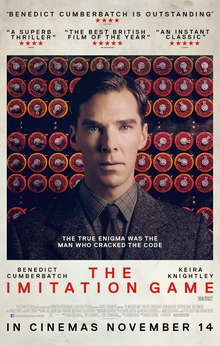
The Imitation Game is a 2014 American historical drama film directed by Morten Tyldum and written by Graham Moore, based on the 1983 biography Alan Turing: The Enigma by Andrew Hodges.
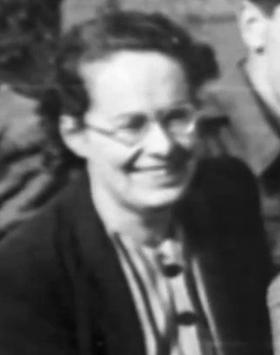
Joan Elisabeth Lowther Murray, MBE was an English cryptanalyst and numismatist best known for her work as a code-breaker at Bletchley Park during the Second World War. Although she did not personally seek the spotlight, her role in the Enigma project that decrypted the German's secret communications earned her awards and citations, such as appointment as a Member of the Order of the British Empire (MBE), in 1946.

The Alan Turing Institute is the United Kingdom's national institute for data science and artificial intelligence, founded in 2015 and largely funded by the UK government. It is named after Alan Turing, the British mathematician and computing pioneer.

The "Alan Turing law" is an informal term for the law in the United Kingdom, contained in the Policing and Crime Act 2017, which serves as an amnesty law to pardon men who were cautioned or convicted under historical legislation that outlawed homosexual acts. The provision is named after Alan Turing, the World War II codebreaker and computing pioneer, who was convicted of gross indecency in 1952. Turing received a royal pardon posthumously in 2013. The law applies in England and Wales.
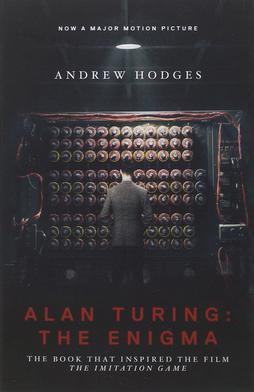
Alan Turing: The Enigma (1983) is a biography of the British mathematician, codebreaker, and early computer scientist, Alan Turing (1912–1954) by Andrew Hodges. The book covers Alan Turing's life and work. The 2014 film The Imitation Game is loosely based on the book, with dramatization.

The Turing Guide, written by Jack Copeland, Jonathan Bowen, Mark Sprevak, Robin Wilson, and others and published in 2017, is a book about the work and life of the British mathematician, philosopher, and early computer scientist, Alan Turing (1912–1954).

Sir John Dermot Turing, 12th Baronet is a British solicitor and author.
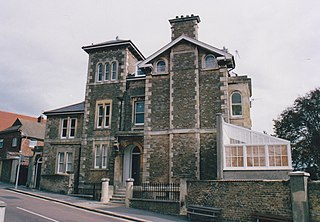
Baston Lodge is a residential villa in St Leonards-on-Sea, Hastings, East Sussex, southern England.

Alan Turing was an English mathematician, computer scientist, logician, cryptanalyst, philosopher, and theoretical biologist. He left an extensive legacy in mathematics, science, society and popular culture.
